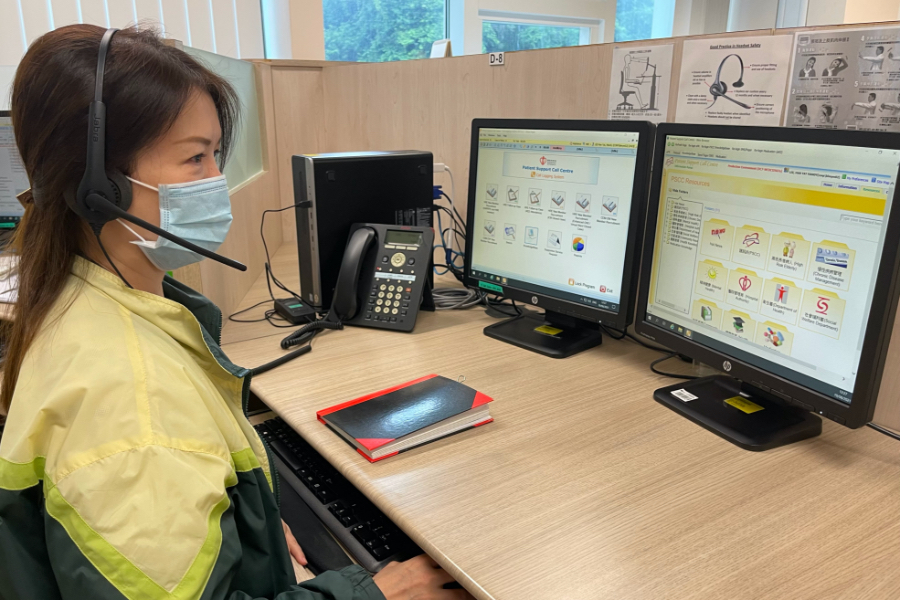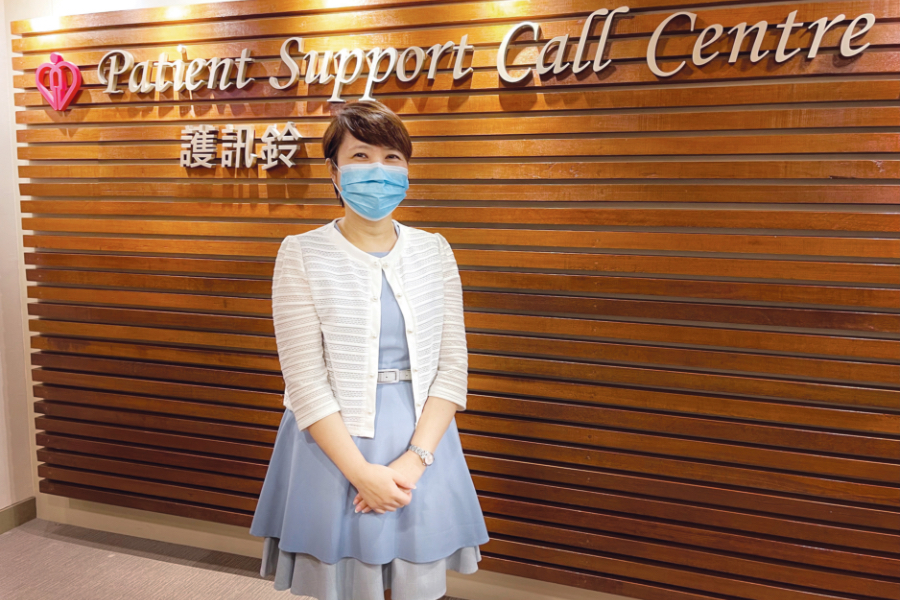AI helps manage chronic diseases in middle-aged patients

The prevalence of chronic diseases among younger age patients has been on the rise in recent years, and their associated complications and morbidity increase the service demand on the public health sector. In fact, bed utilisation in public hospitals has been observed to be rising the fastest among middle-aged patients. In response, the Hospital Authority (HA) has piloted a special module under the existing patient empowerment programme of the Patient Support Call Centre (PSCC) in the second half of 2021 to identify higher risk patients suffering from diabetes mellitus (DM), with the help of technology, artificial intelligence (AI) and big data. Personalised care plans are provided to support such patients in the management of chronic diseases through earlier intervention and patient empowerment.
Identifying patients at higher risk for better patient support
Studies have found that 14% of patients suffering from DM, hypertension or hyperlipidemia go on to develop cardiovascular disease or chronic kidney disease within eight years. To help improve the health quality of these patients and relieve the strain on public hospitals, the HA launched a pilot programme to adopt a newly developed DM risk engine to stratify DM patients under the existing PSCC Chronic Disease Management Programme. Those of younger age and with relatively higher risk of developing or having developed moderate kidney disease are selected to receive an individualised special module related to diabetic kidney disease with an aim to help prevent or delay the onset of complications and associated morbidity. Each patient will receive around 11 calls over a six-month period.

The Unit Manager of PSCC, Patty Kwong (above picture), says that the programme facilitates patients to recognise their own risk and customises care specially related to their underlying risk. PSCC nurses conduct risk assessments according to each patient’s individual profile and set short-term goals to manage risk factors related to DM and chronic kidney disease. Guided by clinical protocols, personalised care plans including dietary advice and advice to stop smoking are provided in specific cases. If PSCC nurses identify patients requiring earlier follow-up or having medical needs, there are mechanisms in place to seek professional advice and support from parent teams in a timely manner.
Help and advice through ‘HA Go’
Patty explains, “the target group of this pilot programme is younger DM patients aged 45 to 64. Apart from providing health advice through phone calls, PSCC will make use of the ‘HA Go’ mobile app to prescribe individualised information, e.g. health education materials and community resources, according to patient needs, in order to increase patient interaction and enhance self-care ability.”
Looking to the future, patients will be able to go beyond the traditional phone service and make real-time video calls to PSCC nurses to support communications on, for example, drugs or personal diet details. They will also be able to record their own blood pressure, pulse rate and weight, etc. and upload details to the ‘HA Go’ for self-monitoring as well as facilitating assessment of their condition for better patient care.
The incorporation of AI and IT advancements into the HA PSCC service is a new initiative, and so it is planned to start on a small scale. The outcome of the pilot programme will be monitored and reviewed for potential enhancements. In the long run, the HA is expected to explore extension of the service to cover other chronic diseases.
Looking to the future, patients will be able to go beyond the traditional phone service and make real-time video calls to PSCC nurses to support communications on, for example, drugs or personal diet details. They will also be able to record their own blood pressure, pulse rate and weight, etc. and upload details to the ‘HA Go’ for self-monitoring as well as facilitating assessment of their condition for better patient care.
The incorporation of AI and IT advancements into the HA PSCC service is a new initiative, and so it is planned to start on a small scale. The outcome of the pilot programme will be monitored and reviewed for potential enhancements. In the long run, the HA is expected to explore extension of the service to cover other chronic diseases.